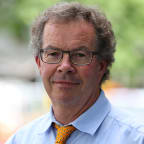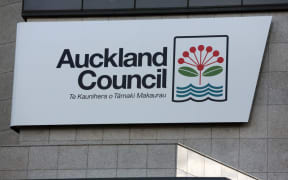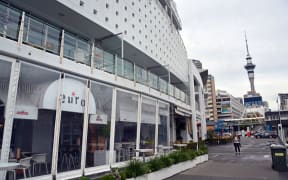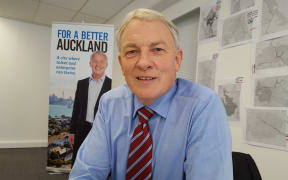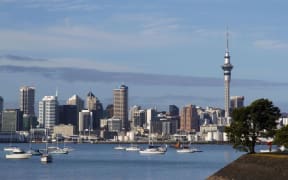Analysis - Less than a fortnight out from his first budget as mayor, the big question is whether Phil Goff's fiscal high-wire act will safely make the other side or end up in the net.

Phil Goff's economic plans for Auckland have suffered speed wobbles from day one. Photo: Auckland Transport
Mr Goff's plan to hit mainly large and centrally-located hotels with a doubling of their rates bills has both sides calling in lawyers, and a political numbers game around the council table that's still too close to call.
Some council watchers had expected this year's budget to be a status quo affair - a 2.5 percent average rate rise - leaving Mr Goff to focus on big issues needing to be sorted in his second budget next year.
These include whether to extend the three-year interim transport levy which had been imposed to boost transport spending.
The mayor however has chosen to make a splash just months into his first term, tackling head-on a desire to find additional revenue that will allow the council to borrow more, and build more infrastructure.
His dream of the government allowing a regional fuel tax was quickly extinguished, leaving just his other big idea, getting the visitor accommodation sector to pick up from ratepayers, the $28 million price tag of promoting Auckland as a destination, and the staging of major events like the World Masters Games.
The execution has shown speed wobbles from day one.
Mr Goff initially called it a 'visitor levy' but acknowledged the council did not have the power to levy a fixed amount on every hotel guest's bill. It is a targeted rate, based on the value of the property in which accommodation is provided.
The accommodation sector phoned their lawyers, and argued they should not have to pay all of the sector's costs when, according to their own data, accommodation accounted for only 10 percent of visitor spending in the city.
Councillors fielded calls from local moteliers who said they'd be put out of business under the mayor's original plan to hit them with a 148 percent rates rise.
Mr Goff responded with a modified proposal excluding accommodation further from the city centre, and bringing in a sliding scale of contribution - ranging from a doubling for central city hotels, to nothing for campgrounds and backpackers.
That only served to inflame opponents, who argued it exaggerated the inequity, pointing out that motor lodges around Pukekohe that book out thanks to the biggest ratepayer-subsidised major event - the annual V8 Supercars round - would be exempt.
Tourism Industry Aotearoa insists the failure to correctly link benefit with rate burden makes the targeted rate illegal. This is another stretching strand on Mr Goff's high-wire.
Mr Goff has been publicly adamant that the rate did pass legal scrutiny before he unveiled it.
"Clearly I would not have proceeded with this without legal advice from council lawyers and our legal firm that it is legitimate for council to act in this way," he told RNZ.
RNZ asked Auckland Council a month ago for the dates and nature of legal advice offered, prior to the November 2016 unveiling of the plan, and to date has not had a reply.
However, the accomodation levy plan has a second, politically-motivated purpose.
He told RNZ, and continues to impress upon councillors, the value of the council having its own tourism-related impost in place, ahead of a possible move by a post-election government, to bring in a nationwide visitor levy.
Mr Goff believes if Auckland already has a levy/tax/rate, the government will feel pressured to ensure a nationwide levy would be shared directly with Auckland Council, to replace the local rate.
It's an argument with merit - albeit a long shot.
Crucially for Mr Goff, the outcome of his targeted rate plan may become a scorecard on how well he has made the transition from 32 years in the confrontational arena of central government politics, to the more collegial environment of local government.
A positive vote on June 1 would be an endorsement of a bold and outside-the-box drive to boost the council coffers.
A loss would add credence to the view expressed by some councillors who oppose the rate.
They argue Mr Goff's mayoral office remains intentionally isolated from the council organisation with too much influence held by mayoral staff who are newcomers to local government.
